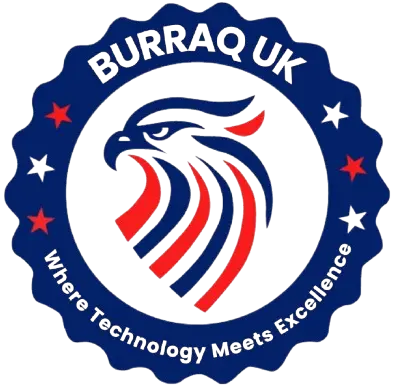Compliance (social & Material) management in the Textile industry
In the highly competitive textile industry, ensuring social and material compliance is essential for meeting international regulations, maintaining ethical standards, and securing global market access. Compliance guarantees fair labor practices, safe workplaces, and responsible use of materials, all of which build trust with customers and stakeholders.At Buraaq UK, we provide specialized training and consultancy to help textile businesses effectively manage social responsibility and material safety.

Aim of Compliance (social & Material) management in the Textile industry
The aim of Compliance Management in the textile industry is to help organizations uphold ethical labor practices and ensure the responsible sourcing and use of materials, in accordance with international social and environmental standards. This involves protecting workers’ rights, promoting safe and fair working conditions, and managing raw materials and chemicals to minimize environmental impact. By implementing robust compliance frameworks, textile manufacturers and suppliers can reduce risks related to labor violations, environmental harm, and product safety, while enhancing their brand reputation and access to global markets. Ultimately, the goal is to foster sustainable, transparent, and accountable supply chains that drive continuous improvement and long-term success.
Course Overview
Compliance (social & Material) management in the Textile industry
- Minimum educational qualification: Intermediate (12th grade) or equivalent. Preference given to candidates with degrees in Textile Engineering, Business, Management, or related fields.
- Professionals working in the textile industry, especially in areas like manufacturing, supply chain, quality assurance, compliance, and corporate social responsibility, are encouraged to join.
- No strict prior experience required; beginners with interest in compliance and sustainability are welcome.
- Basic computer skills and proficiency in English or Urdu are necessary to understand and participate in the training.
- Commitment to learn and apply social and material compliance principles in the textile sector.
| Course Code | Curriculum Title | Credit | DLH |
|---|---|---|---|
| BUK1673-1 | Face compliance Audit Independently | 3 | 10 |
| BUK1673-2 | Write audit report and CAP. | 3 | 10 |
| BUK1673-3 | Understand the below audit requirements: | 3 | 10 |
| BUK1673-4 | Understand basic concept of SA 8000 | 3 | 10 |
| BUK1673-5 | Figure out reasons to audit failure. | 3 | 10 |
| BUK1673-6 | Understand good audit management | 3 | 10 |
Learning Objectives
- Understand why Social, Technical, Security & Product certification audit is performed.
- Face compliance Audit Independently.
- Write audit report and CAP.
- Know Code of Conduct of different buyers (Wal-Mart, Lidl, Primark, H&M, M&S, Lidl
- Understand the below audit requirements:
- BSCI, SEDEX, ICS, WRAP, C-TPAT, OEKO-TEX, GOTS, OCS
- Understand basic concept of SA 8000.
- Prepare checklist that requires various legal licenses and permits to run a factory.
- Figure out reasons to audit failure.
- Understand good audit management.
- Learn basic environmental standard.
- Learn Common HR administrative or practice in an organization.
- Textile Industry Professionals
- Managers and Supervisors
- Business Owners and Entrepreneurs
- Students and Graduates
- Consultants and Auditors
- All Modules within this qualification are assessed internally by the approved training Centre and externally verified by BURRAQ UK. The program uses a criterion-referenced assessment approach to ensure that learners successfully meet all required learning outcomes.
- A Pass in any unit is granted only when the learner submits valid, reliable, and authentic evidence that demonstrates achievement of the assessment criteria. The Assessor is responsible for reviewing this evidence and confirming that the learner has attained the expected standard.
